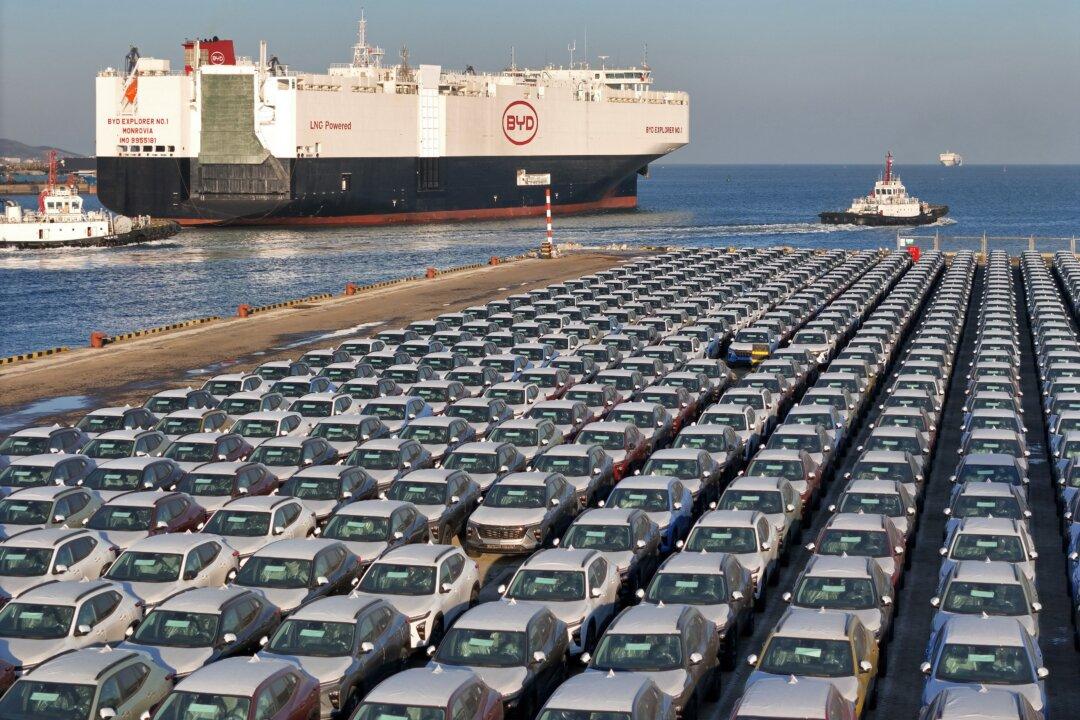Sen. Sherrod Brown (D-Ohio) has called on President Joe Biden to ban all China-made electric vehicles (EV) amid growing concerns that these imported cars could decimate the U.S. auto industry.
In a letter dated April 11 to the president, the senator warned that heavily subsidized cheap Chinese EVs could undermine U.S. economic and national security. “I implore you to take bold, aggressive action and to permanently ban EVs produced by Chinese companies or whatever subsidiaries they establish to conceal their origins,” Mr. Brown said.




